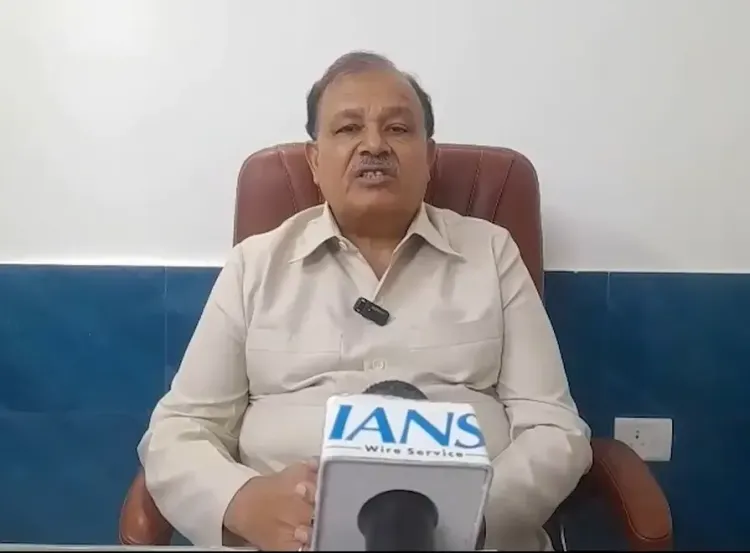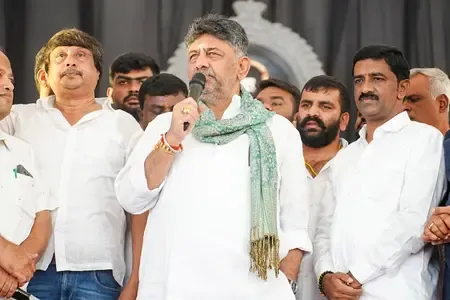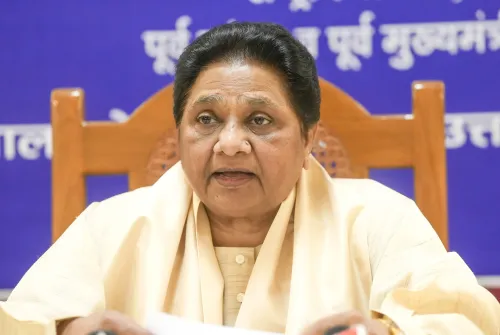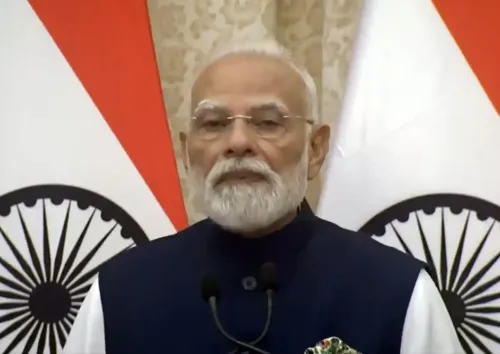Former Election Official Critiques Rahul Gandhi’s Comments on EC

Synopsis
Key Takeaways
- Dr. Amin rebukes Rahul Gandhi's electoral system claims.
- Accusations of immaturity and frustration highlighted.
- Historical context of EVM introduction by Congress noted.
- Critique of opposition's frequent questioning of EVM credibility.
- Emphasis on maturity and accountability in leadership.
Ghaziabad, April 21 (NationPress) Comments made by Congress leader Rahul Gandhi during his address at Brown University in the United States have ignited a political uproar in India.
The Congress MP and Leader of the Opposition (LoP) in Lok Sabha has accused the electoral system of facing significant irregularities, particularly asserting that the Election Commission engaged in a “compromise” during the Maharashtra Assembly elections while alleging a “deep flaw” within the system.
In response to these claims, Dr. Mohammad Amin, a former Joint Director of the Election Commission of India, characterized Rahul's statements as “immature” and “lacking understanding”.
In an interview with IANS on Monday, Dr. Amin remarked: “Rahul Gandhi has a tendency to criticize the Election Commission periodically, which reflects his frustration. He seems to overlook that his family members, including his father, grandmother, mother, and sister, have all engaged in the electoral process. He has also secured victories in two constituencies. Yet, he persists in questioning the Commission, which underscores his immaturity and a lack of comprehension.”
Dr. Amin further suggested that as a senior opposition figure, Rahul ought to display maturity and accountability. “He is familiar with the system. Making such unfounded accusations merely highlights his exasperation,” he stated.
Addressing Rahul's skepticism regarding the credibility of Electronic Voting Machines (EVMs), Dr. Amin remarked that the opposition's skepticism towards EVMs has become a customary strategy.
“When they emerge victorious, no concerns are raised. However, when they face defeat, they blame the Commission, the EVMs, and the personnel,” he observed.
He also highlighted that EVMs were introduced in India in 2004 under a Congress-led administration. “At that time, even the BJP raised concerns regarding EVMs and published a book on the subject, which was launched by L.K. Advani,” he added.
Dr. Amin further clarified that Indian EVMs operate on batteries, akin to calculators, and are not subject to tampering. Before the implementation of EVMs and VVPATs, all political parties were invited to comprehend their functionality, and the system was adopted only after their agreement.
Moreover, he noted that the U.S. does not utilize EVMs, as they depend on network-based voting machines, which present different challenges.









